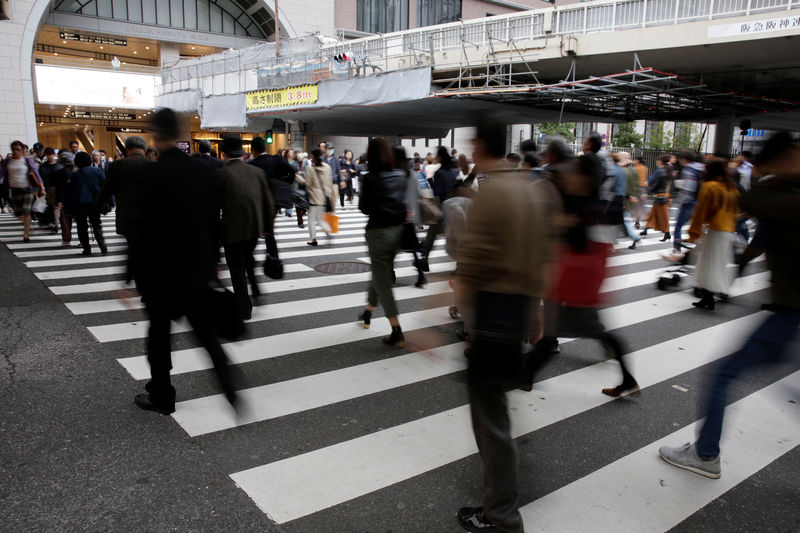TOKYO (Reuters) - Japan's government on Friday revised up slightly its estimate on workers' compensation as measured in the national accounts, following recent revision to underreported wage data caused by more than a decade of faulty polling methods.
Friday's data revision came a day after the government said it had failed to properly compile 22 of its 56 key indicators. It followed the revelation that errors in the labor ministry's polling caused it to underreport wage data from 2004 to 2017.
The data errors are unlikely to change the pace of growth estimate, but they hurt the credibility of key government data used to gauge the success of Prime Minister Shinzo Abe's economic policies.
"It is important for the government to exert efforts to prevent a recurrence and regain public trust in our statistics," Economy Minister Toshimitsu Motegi told a news conference after a cabinet meeting.
"I don't think our economic assessment will change because of the revision to wage data," while taking into account other data such as GDP, private consumption, capital spending, output, exports and imports and business sentiment, he said.
Opposition lawmakers have described the data error as "falsification" aimed at justifying the premier's "Abenomics" stimulus policies. They are expected to grill Abe's government in regular parliament sessions, to convene on Monday.
Erroneous data makes it difficult to assess whether Abe's policies are working, leaving policy makers blind-sided in their efforts to foster sustainable economic growth.
Japan's labor ministry said this month that discrepancies in its polling methods caused it to underreport monthly wage data from 2004 to 2017. The ministry has revised wage data from January 2012 to October 2018 to help rectify the errors.
The wage data revision led the Cabinet Office, which compiles GDP data, to revise up estimates on workers' compensation by 700 billion yen ($6.38 billion) in each of fiscal years 2016 and 2017 to 271.2 trillion yen and 276.3 trillion yen respectively. The annual pace of growth remained unchanged at 1.9 percent in fiscal 2017.

On a quarterly basis, the pace of year-on-year growth in workers' compensations was largely unchanged by the revision. Cabinet Office officials said they will later revise further past data going back to 2004.